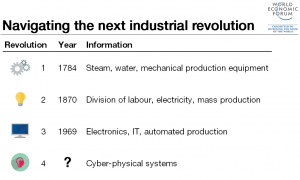Japan Times
Tuesday, Feb. 23, 2010
How the rest of the world deals with aliens at the ballot box
By SARAH NOORBAKHSH
Excerpt:
Acknowledging the rights of immigrant groups, “recognizing special ties among particular groups of countries” and reciprocation are often part and parcel of granting suffrage, says Michele Wucker, executive director of the World Policy Institute. The EU, the Commonwealth, Brazil, Portugal and Spain are cases in point. However, the decision in South Korea had the effect of enfranchising mostly Taiwanese immigrants rather than being a “quid pro quo” reform benefiting Japan, and the country has thus far only indicated that it hopes for a similar move here in Japan. Also worth noting is that whereas 6,000 noncitizens benefited from the law change in South Korea, there are over 900,000 permanent foreign residents in Japan, including over 400,000 “special permanent residents” — mostly Koreans and Taiwanese who lived in Japan before and during the war, as well as their descendants.
So what about the argument that, rather than give voting rights to permanent residents, they should be encouraged to naturalize instead? This attitude is prevalent in North America, where noncitizen voting rights have been rolled back. In contrast, Chile introduced alien suffrage to in part to compensate for its slow, inefficient nationalization system.
“If people feel that they are part of a community with their neighbors, then they are more likely to embrace national values and even apply for citizenship as well,” suggests Wucker. Indeed, movements in Toronto as well as Rome have used this argument in pressing for the involvement of immigrant groups in local politics, though demonstrating objectively that granting foreigners the vote leads to an increased demand for naturalization has proved a challenge.
CLICK TO READ FULL STORY
 Throughout history, technological breakthroughs have created industrial revolutions that have shaped not only how we produce goods and services but also the movement of people around the world. The Fourth Industrial Revolution, also known as the New Machine Age, is no different. As increasing automation makes some jobs obsolete and additive manufacturing moves industries and jobs across national borders, these technological changes will upend the politics and economics of global labour migration. In an article for the World Economic Forum Agenda, “Will migrants and robots be competing for the same jobs?” published on November 10, 2015, I reflected on the challenges these changes will present.
Throughout history, technological breakthroughs have created industrial revolutions that have shaped not only how we produce goods and services but also the movement of people around the world. The Fourth Industrial Revolution, also known as the New Machine Age, is no different. As increasing automation makes some jobs obsolete and additive manufacturing moves industries and jobs across national borders, these technological changes will upend the politics and economics of global labour migration. In an article for the World Economic Forum Agenda, “Will migrants and robots be competing for the same jobs?” published on November 10, 2015, I reflected on the challenges these changes will present.